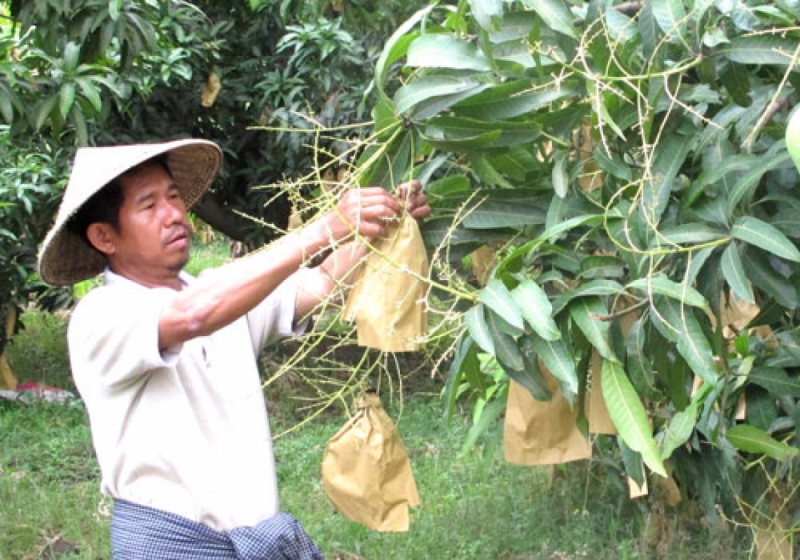




Mango farmers only became eligible for good agricultural practice (GAP) certification this year.
The certificate shows buyers that “fruits and vegetables are produced, packed, handled, and stored as safely as possible to minimise risks of microbial food safety hazards”, according to the US Department of Agriculture.
Those wishing to apply to become certified must do so through the Department of Agriculture.
Inspectors from the department will check the quality of planting soil and water and investigate for minerals harmful to humans before bestowing GAP certification on fruit products.
The inspectors will also see if applicants’ handling and packing procedures are up to snuff under GAP standards.
“The GAP certificate provides consumers proof they won’t be harmed if they eat one of the approved products,” said Mandalay Region agriculture ministry director general U Myint Oo.
Though the applicant pool is currently small, U Myint Oo said he expects “a lot” of people to apply in the next year.
The main planting areas for mangoes are Patheingyi township, Amarapura township, Tada-U, Singaing township and Kyaukse township in Mandalay Region. Planting spans 22,829 acres in total, according to the Ministry of Agriculture.